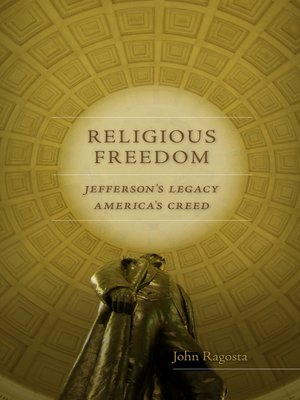Religious Freedom
ebook ∣ Jefferson's Legacy, America's Creed · Jeffersonian America
By John A. Ragosta

Sign up to save your library
With an OverDrive account, you can save your favorite libraries for at-a-glance information about availability. Find out more about OverDrive accounts.
Find this title in Libby, the library reading app by OverDrive.



Search for a digital library with this title
Title found at these libraries:
| Library Name | Distance |
|---|---|
| Loading... |
For over one hundred years, Thomas Jefferson and his Statute for Establishing Religious Freedom have stood at the center of our understanding of religious liberty and the First Amendment. Jefferson's expansive vision—including his insistence that political freedom and free thought would be at risk if we did not keep government out of the church and church out of government—enjoyed a near consensus of support at the Supreme Court and among historians, until Justice William Rehnquist called reliance on Jefferson "demonstrably incorrect." Since then, Rehnquist's call has been taken up by a bevy of jurists and academics anxious to encourage renewed government involvement with religion.
In Religious Freedom: Jefferson's Legacy, America's Creed, the historian and lawyer John Ragosta offers a vigorous defense of Jefferson's advocacy for a strict separation of church and state. Beginning with a close look at Jefferson's own religious evolution, Ragosta shows that deep religious beliefs were at the heart of Jefferson's views on religious freedom. Basing his analysis on that Jeffersonian vision, Ragosta redefines our understanding of how and why the First Amendment was adopted. He shows how the amendment's focus on maintaining the authority of states to regulate religious freedom demonstrates that a very strict restriction on federal action was intended. Ultimately revealing that the great sage demanded a firm separation of church and state but never sought a wholly secular public square, Ragosta provides a new perspective on Jefferson, the First Amendment, and religious liberty within the United States.







